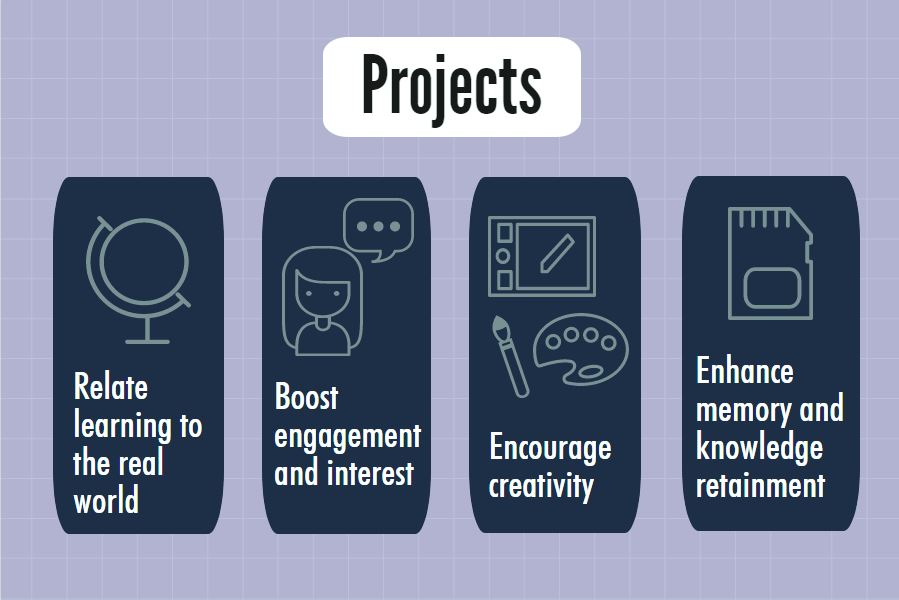Why we should pivot from tests to projects
Graphic by Meimei Greenstein.
January 30, 2018
Two years ago, the elimination of final exams generated a lot of controversy, and on the whole, a lot of student relief. Although the decision may have reduced testing anxiety, it also had the unfortunate effect of reducing something else: reviewing important material at the end of the semester.
We shouldn’t bring back final exams, but reviewing the year’s material is crucial for retaining knowledge. As a result, in the week where final exams used to reside, Whitman should have a “project week” in classes that used to have final exams. Having this week would ensure students retain knowledge and give teachers extra time to grade.
Not only do final projects help students review material learned over a year—which they’re unlikely to do unless they have an incentive—but studies suggest that projects are even more successful at helping students retain information than exams. Projects tend to require students to delve deeper into the information and synthesize it, which requires active thought rather than rote memorization.
A 2009 Purdue University analysis of 15 years of data found that project-based learning improves students’ long term retention and application of knowledge more than tests. Students who had done projects performed significantly better on things that “required a level of elaboration beyond multiple-choice or true/false questions.”
Projects also require and encourage a level of creativity that is impossible to duplicate on tests, which is important because creativity is essential in the workplace. A 2010 IBM survey of over 1,500 CEOs worldwide found that they thought the most crucial factor for future success is creativity. This shouldn’t be surprising: in a world where technology is transforming our way of living, creativity allows for adaptability and on-the-spot problem solving.
Furthermore, a project week at the end of the year would give teachers a chance to catch up on the semester’s grading. Allowing students to work on projects during class would create a grading opportunity for many teachers, an opportunity they lost when final exams were eliminated. This reduces stress for teachers and gives them time to give higher quality grading on crucial assignments.
One concern about a project week is that teachers might not have enough time to grade the projects before the end of the year. Exam scantrons are easy to run through a scanner, but projects can take more time to grade, which may prevent the grade from being entered before the end of the semester.
The best solution to this problem is having students present projects to their class in the last day or two of the week. This would allow teachers to grade presentations while they are being given, so they don’t have to grade them after class. Even if some grading is required after class, it is much faster to grade a project than something like an essay, English teacher Matthew Bruneel said. Plus, students would also become more comfortable with presentations and public speaking, which are important skills to have in the long term.
Transitioning to a more project-based academic system would undoubtedly be difficult, but we shouldn’t let inertia hold us back. Innovation is the prerequisite to all progress, and education is not an exception.







